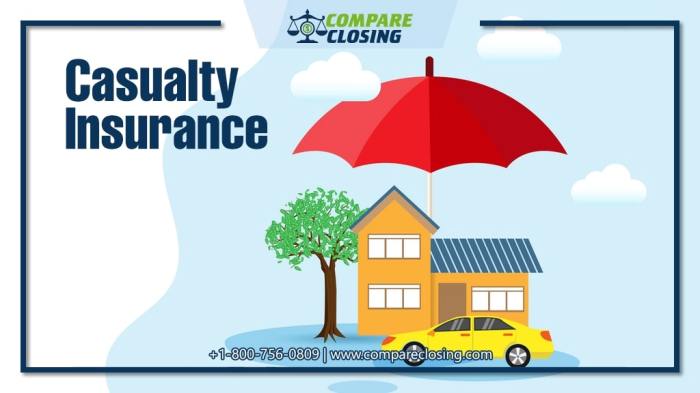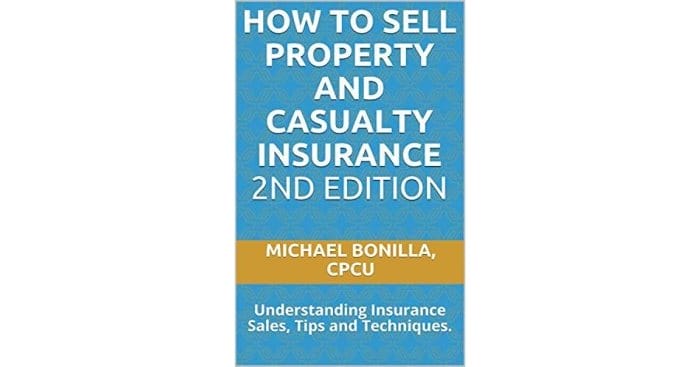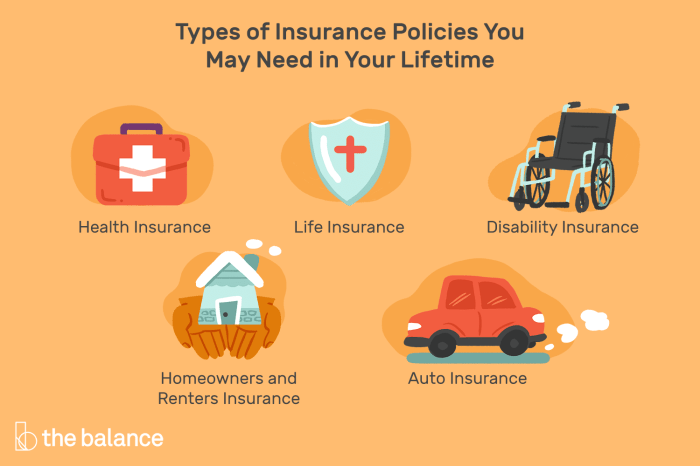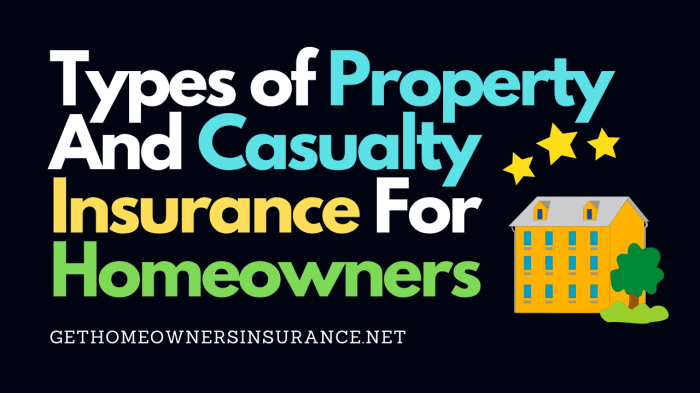In the realm of financial security, property and casualty insurance stands as a cornerstone, safeguarding individuals and businesses from unforeseen risks. As an insurance agent specializing in this field, you embark on a journey of immense potential, both financially and professionally.
This comprehensive guide unveils the intricacies of selling property and casualty insurance, providing invaluable tips and insights to help you excel in this dynamic industry.
From understanding the fundamentals of property and casualty insurance to mastering effective sales strategies, this guide equips you with the knowledge and skills necessary to navigate the ever-changing insurance landscape. Discover the secrets of building a loyal client base, staying ahead of industry trends, and ensuring ethical and legal compliance.
Embark on this journey today and unlock the gateway to a rewarding career in property and casualty insurance.
Understanding Property and Casualty Insurance
Property and casualty insurance, also known as P&C insurance, provides financial protection against risks and damages to property and assets. Understanding its basic principles and different types of policies is crucial for safeguarding your valuable possessions and securing your financial stability.
P&C insurance is a contract between an insurance company and an individual or business where the insurer agrees to compensate the insured for losses or damages caused by covered perils or events. The policyholder pays premiums to the insurance company in exchange for this protection.
Types of Property and Casualty Insurance Policies
Property and casualty insurance encompasses a wide range of policies, each designed to protect specific assets and cover various types of risks.
- Homeowners Insurance: Provides coverage for damages to the structure of a residential property, personal belongings, and liability protection against accidents or injuries occurring on the premises.
- Renters Insurance: Offers protection for personal belongings and liability coverage for renters living in leased properties.
- Commercial Property Insurance: Covers business properties, including buildings, equipment, and inventory, against losses due to fire, theft, vandalism, and other covered perils.
- Auto Insurance: Provides coverage for damages to vehicles, liability protection for accidents, and medical payments for injuries sustained by the insured and passengers.
- General Liability Insurance: Protects businesses against claims of bodily injury or property damage caused by their operations, products, or services.
Examples of Property and Casualty Insurance Claims
Property and casualty insurance claims can arise from various incidents, including:
- Fire Damage: Coverage for damages caused by fire to residential or commercial properties, including structures, belongings, and inventory.
- Theft: Reimbursement for stolen personal belongings, jewelry, or business equipment covered under the policy.
- Natural Disasters: Protection against losses resulting from hurricanes, earthquakes, floods, and other natural calamities.
- Liability Claims: Coverage for legal expenses, settlements, and judgments arising from accidents or injuries caused by the insured or their property.
- Vehicle Accidents: Coverage for damages to vehicles involved in collisions, hit-and-run incidents, and other accidents.
Benefits of Selling Property and Casualty Insurance
Selling property and casualty insurance offers a range of advantages, including financial rewards, job security, and opportunities for personal and professional growth.
Financial Rewards
Property and casualty insurance agents have the potential to earn substantial incomes. According to the U.S. Bureau of Labor Statistics, the median annual wage for insurance sales agents was $53,820 in May 2021. The top 10% of earners made more than $129,740 per year.
In addition to base salaries, many property and casualty insurance agents also earn commissions based on the policies they sell. This can significantly increase their earnings potential.
Job Security and Stability
The insurance industry is relatively stable, and property and casualty insurance agents typically enjoy job security. This is because insurance is a necessary product that people and businesses need to protect their assets.
Even during economic downturns, people and businesses still need insurance. This makes the property and casualty insurance industry a relatively recession-proof career.
Opportunities for Personal and Professional Growth
Selling property and casualty insurance can provide opportunities for personal and professional growth. Agents who are successful in this field are typically good at sales, customer service, and problem-solving.
They also have a strong understanding of the insurance industry and the products they sell. As agents gain experience, they can move up the corporate ladder and take on more responsibilities.
Examples of Successful Property and Casualty Insurance Agents
There are many examples of successful property and casualty insurance agents. Some of these agents have gone on to become leaders in the insurance industry.
One example is Warren Buffett, the CEO of Berkshire Hathaway. Buffett started his career as an insurance salesman. He eventually went on to build Berkshire Hathaway into one of the most successful companies in the world.
Another example is Peter Drucker, the father of modern management. Drucker started his career as an insurance salesman. He eventually went on to become one of the most influential management thinkers of the 20th century.
Challenges of Selling Property and Casualty Insurance

The property and casualty insurance industry is highly competitive, with numerous agents vying for customers’ attention. This can make it difficult for new agents to break into the market and establish a successful business.
In addition to the competitive nature of the industry, property and casualty insurance agents also face a number of regulatory and compliance challenges. These challenges can include:
Regulatory and Compliance Challenges
- Staying up-to-date on changing insurance regulations
- Ensuring that all insurance policies are properly written and in compliance with state laws
- Submitting accurate and timely reports to state insurance departments
- Responding to customer inquiries and complaints in a timely and professional manner
In addition to the regulatory and compliance challenges, property and casualty insurance agents also face a number of common obstacles, including:
Common Obstacles
- Customer price sensitivity: Customers are often price-sensitive when it comes to insurance, and they may be reluctant to pay higher premiums.
- Competition from direct writers: Direct writers, such as online insurance companies, can offer lower premiums than traditional insurance agents.
- Lack of customer loyalty: Customers may be more likely to switch insurance companies if they can find a better deal.
Skills Required for Selling Property and Casualty Insurance

Succeeding in the property and casualty insurance industry demands a unique blend of salesmanship, technical expertise, and interpersonal skills. These professionals play a pivotal role in educating clients, assessing risks, and providing tailored insurance solutions that safeguard their assets and financial well-being.
Strong Sales and Communication Skills
Property and casualty insurance agents are essentially sales professionals tasked with persuading clients to purchase insurance policies. They must possess exceptional sales skills, including the ability to identify customer needs, build rapport, and effectively communicate the benefits and features of insurance products.
Strong communication skills are paramount to clearly explain complex insurance concepts, address customer queries, and negotiate terms.
Technical Knowledge
In addition to sales prowess, property and casualty insurance agents require a comprehensive understanding of insurance policies, underwriting guidelines, and risk assessment techniques. They must stay abreast of industry regulations, market trends, and product developments to provide expert advice to clients.
Furthermore, agents must be proficient in using various software and tools for policy administration, quoting, and claims processing.
Soft Skills
Beyond technical expertise, property and casualty insurance agents must possess a range of soft skills that contribute to their success. These include:
- Problem-Solving: The ability to analyze complex situations, identify potential risks, and develop tailored insurance solutions.
- Attention to Detail: Meticulousness in reviewing insurance applications, policy terms, and claims documentation to ensure accuracy and compliance.
- Empathy: The capacity to understand and empathize with clients’ needs, concerns, and financial situations.
- Professionalism: Maintaining a professional demeanor, adhering to ethical standards, and inspiring trust among clients.
- Adaptability: The ability to adapt to changing market conditions, evolving customer preferences, and technological advancements.
Steps to Becoming a Property and Casualty Insurance Agent

A career as a property and casualty insurance agent offers the opportunity to help individuals and businesses protect their assets and mitigate financial risks. The path to becoming a successful property and casualty insurance agent involves a combination of education, licensing, and hands-on experience.
Educational Requirements
Aspiring property and casualty insurance agents typically need a high school diploma or equivalent. While a bachelor’s degree is not always required, it can provide a strong foundation for understanding insurance concepts and principles. Courses in finance, economics, mathematics, and business can be beneficial.
Some employers may also prefer candidates with a bachelor’s degree in a related field, such as risk management or insurance.
Licensing and Certification
Property and casualty insurance agents are required to obtain a license in the state(s) where they plan to sell insurance products. Licensing requirements vary by state, but typically involve passing an exam that covers insurance laws, regulations, and products. Some states may also require agents to complete continuing education courses to maintain their license.
Additionally, some insurance companies may offer their own certification programs for agents, which can demonstrate a higher level of knowledge and expertise.
Step-by-Step Guide
The following steps provide a general overview of the process for becoming a property and casualty insurance agent:
- Education: Obtain a high school diploma or equivalent. Consider pursuing a bachelor’s degree in a related field, such as finance, economics, mathematics, business, risk management, or insurance.
- Licensing: Research the licensing requirements in the state(s) where you plan to sell insurance products. Complete the required pre-licensing education courses and pass the licensing exam.
- Employment: Apply for job openings with insurance companies, agencies, or brokerages. Consider starting as an intern or apprentice to gain hands-on experience and knowledge.
- Training: Participate in training programs offered by your employer or insurance companies to learn about their products, policies, and procedures.
- Continuing Education: Stay up-to-date on industry trends, regulations, and products by attending conferences, workshops, and webinars. Complete continuing education courses as required by your state to maintain your license.
Marketing and Sales Strategies for Property and Casualty Insurance

Creating a solid marketing plan is crucial for effectively selling property and casualty insurance policies. This involves identifying the target audience, understanding their needs, and developing tailored strategies to reach and engage them. Additionally, staying informed about the latest industry trends, customer preferences, and regulatory changes is essential for staying competitive and driving sales.
Sales Techniques for Property and Casualty Insurance
There are various sales techniques that can be employed to successfully sell property and casualty insurance policies. These include:
- Needs Assessment: Understanding the specific needs and concerns of potential customers is key to effectively addressing their insurance requirements and offering tailored solutions.
- Risk Evaluation: Assessing the risks associated with a particular property or business is essential for determining the appropriate coverage and premium. This involves analyzing factors such as location, construction, and past claims history.
- Product Knowledge: Having a thorough understanding of the different types of property and casualty insurance policies, their coverage options, and exclusions is crucial for effectively presenting them to customers and addressing their queries.
- Building Relationships: Establishing strong relationships with customers based on trust and understanding is essential for long-term success in selling property and casualty insurance. This involves actively listening to their needs, responding promptly to inquiries, and providing exceptional customer service.
- Leveraging Technology: Utilizing technology such as online quoting tools, social media platforms, and customer relationship management (CRM) systems can streamline sales processes, improve communication, and enhance the overall customer experience.
Building a Client Base for Property and Casualty Insurance

In the competitive world of property and casualty insurance, building a strong client base is crucial for agents’ success and business growth. It ensures a steady stream of revenue, fosters loyalty, and enhances the reputation of the agent.
There are various effective ways to build a client base for property and casualty insurance:
Networking
Attending industry events, seminars, and conferences is a great way to meet potential clients, exchange business cards, and introduce oneself as a property and casualty insurance agent. Engaging in local business organizations and community activities can also help establish connections and build rapport with potential clients.
Referrals
Encouraging existing clients to refer their friends, family, and colleagues is a powerful method of expanding one’s client base. Offering incentives or rewards for successful referrals can further encourage clients to spread the word about the agent’s services.
Online Presence
Having a professional and informative website, maintaining active social media accounts, and engaging in online forums and discussions related to property and casualty insurance can help attract potential clients. Regularly publishing valuable content, such as blog posts, videos, and infographics, can establish the agent as a thought leader and attract visitors to their website.
Partnerships
Collaborating with other professionals in related fields, such as real estate agents, mortgage brokers, and financial advisors, can provide access to a wider pool of potential clients. Cross-referrals and joint marketing efforts can be mutually beneficial in expanding each other’s client base.
Client Retention Strategies
Providing exceptional customer service, promptly addressing inquiries and claims, and regularly reviewing and updating clients’ policies are key strategies for retaining existing clients. Offering personalized advice, tailored to the specific needs of each client, can enhance client satisfaction and loyalty.
Continuing Education and Professional Development for Property and Casualty Insurance Agents
Property and casualty insurance agents play a crucial role in providing individuals and businesses with coverage against risks associated with property damage, liability, and other unforeseen events. To stay up-to-date with industry trends, regulatory changes, and evolving customer needs, continuing education and professional development are essential for these professionals.Continuing
education courses for property and casualty insurance agents typically cover a wide range of topics, including:
- Insurance policies and products
- Underwriting and risk assessment
- Claims handling and processing
- Customer service and sales techniques
- Legal and regulatory compliance
Agents can choose from various course formats, including online courses, seminars, workshops, and conferences. These courses are often offered by professional organizations, insurance companies, and educational institutions.
Professional Development Opportunities
Beyond continuing education courses, property and casualty insurance agents can also engage in professional development activities to enhance their skills and knowledge. These activities may include:
- Joining professional organizations and attending industry events
- Reading industry publications and staying informed about current trends
- Seeking mentorship or coaching from experienced agents
- Participating in volunteer work or community involvement related to insurance
By actively pursuing continuing education and professional development, property and casualty insurance agents can stay competitive in the industry, provide better service to their clients, and increase their earning potential.
Ethical and Legal Considerations for Property and Casualty Insurance Agents

Property and casualty insurance agents have a significant ethical and legal responsibility to their clients and the insurance companies they represent. They must act in the best interests of their clients while complying with all applicable laws and regulations.
Ethical Responsibilities of Property and Casualty Insurance Agents
Ethical responsibilities of property and casualty insurance agents include:
- Providing accurate and unbiased information to clients about insurance products and coverage options.
- Recommending insurance products that are appropriate for the client’s needs and financial situation.
- Treating clients fairly and respectfully.
- Maintaining confidentiality of client information.
- Avoiding conflicts of interest.
Legal Requirements for Property and Casualty Insurance Agents
Property and casualty insurance agents must comply with various legal requirements, including:
- Obtaining a license from the state in which they operate.
- Taking continuing education courses to maintain their license.
- Complying with all applicable insurance laws and regulations.
- Disclosing any potential conflicts of interest to clients.
- Maintaining accurate records of all insurance transactions.
Examples of Ethical Dilemmas that Property and Casualty Insurance Agents May Face
Property and casualty insurance agents may face ethical dilemmas in situations such as:
- When a client asks for coverage for a high-risk activity or property.
- When an insurance company denies a client’s claim.
- When an agent is offered a commission for recommending a particular insurance product.
- When an agent is asked to misrepresent information on an insurance application.
In these situations, agents must carefully consider their ethical and legal obligations and make decisions that are in the best interests of their clients.
Future Trends in Property and Casualty Insurance

Intro ParagraphThe property and casualty insurance industry is undergoing a period of rapid transformation, driven by technological advancements, changing consumer preferences, and evolving regulatory landscapes. These trends are presenting both challenges and opportunities for property and casualty insurance agents, who must adapt to remain competitive in the years to come.
Digitalization and Automation
- Increased use of technology: The insurance industry is embracing technology at an unprecedented rate, from data analytics to artificial intelligence (AI). This trend is leading to increased automation of tasks, improved underwriting accuracy, and personalized customer experiences.
- Challenges: Property and casualty insurance agents must invest in technology and learn new skills to stay relevant. They must also address concerns about data privacy and security.
- Opportunities: Agents who embrace technology can streamline their operations, improve customer service, and gain a competitive edge.
Changing Consumer Preferences
- Demand for convenience and personalization: Consumers expect a seamless and personalized experience from their insurance providers. They want to be able to purchase policies, file claims, and manage their accounts online or through mobile apps.
- Challenges: Property and casualty insurance agents must adapt to meet the changing needs of consumers. They must provide multiple channels for customers to interact with them and offer personalized advice and recommendations.
- Opportunities: Agents who can provide a superior customer experience will be able to attract and retain more clients.
Evolving Regulatory Landscapes
- Increased regulation: The insurance industry is facing increased regulation, both at the state and federal levels. This is due to concerns about consumer protection, financial stability, and systemic risk.
- Challenges: Property and casualty insurance agents must stay up-to-date on the latest regulations and ensure that they are in compliance. They must also be able to explain these regulations to clients in a clear and concise manner.
- Opportunities: Agents who are knowledgeable about the regulatory landscape can provide valuable advice to clients and help them navigate the complexities of the insurance market.
Outcome Summary

As you embark on this exciting journey, remember that success in selling property and casualty insurance lies not only in technical expertise but also in the ability to connect with clients, understand their needs, and provide tailored solutions. Embrace the challenges and opportunities that this industry presents, and you will find yourself on a path of continuous growth and fulfillment.
The world of property and casualty insurance awaits your expertise and dedication. Seize this opportunity and make your mark as a trusted advisor, guiding individuals and businesses towards financial security.
FAQ Corner
What are the key benefits of selling property and casualty insurance?
Selling property and casualty insurance offers numerous benefits, including lucrative financial rewards, job security and stability, and the opportunity to make a positive impact on the lives of clients by providing them with peace of mind and financial protection.
What are some common challenges faced by property and casualty insurance agents?
The property and casualty insurance industry is highly competitive, and agents often face challenges such as regulatory and compliance requirements, the need to stay updated with industry trends, and the task of building and maintaining a strong client base.
What skills are essential for success in selling property and casualty insurance?
To excel in selling property and casualty insurance, strong sales and communication skills are paramount. Additionally, agents must possess technical knowledge of insurance policies, industry regulations, and underwriting guidelines. Soft skills such as empathy, patience, and the ability to build rapport with clients are also crucial.
How can I become a property and casualty insurance agent?
To become a property and casualty insurance agent, you typically need to meet educational requirements, obtain a license and certification, and complete a training program. The specific requirements vary by state, so it’s important to research the regulations in your area.
What marketing and sales strategies can I use to sell property and casualty insurance?
Effective marketing and sales strategies for selling property and casualty insurance include developing a strong marketing plan, utilizing digital marketing channels, networking with potential clients, and providing excellent customer service.



